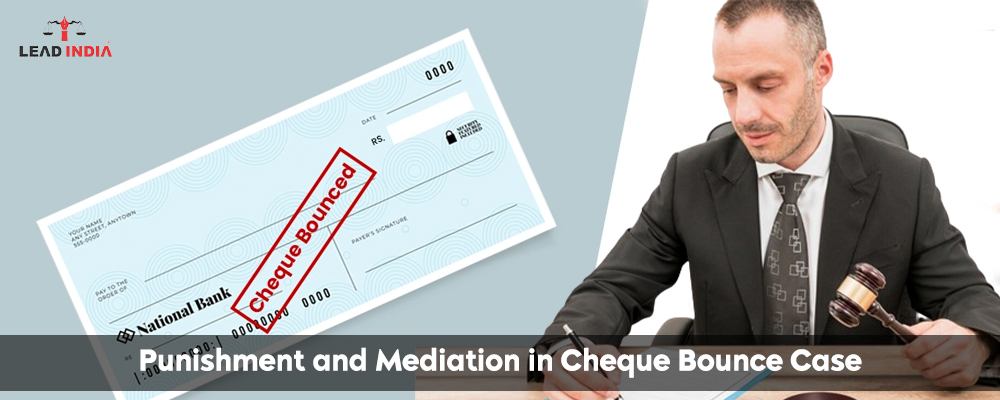Financial transactions have become essential in both business and personal interactions in today’s fast-paced economic environment. Cheques are a popular means of financial exchange because they act as a guarantee of payment.
However, disagreements and strained relationships can result from cheque bounces, which occur when a cheque is not honoured for various reasons, such as insufficient funds. Cheque bounce arbitration and mediation have become popular alternative dispute resolution techniques to resolve these disputes more amicably and effectively.
Need A Legal Advice
The internet is not a lawyer and neither are you. Talk to a real lawyer about your legal issue

Cheque Bounce Case: Overview
- A Cheque Bounce case is a serious offense that can result in a fine or even jail time, as per the Negotiable Instrument Act. In order for the drawer of the cheque to retain his rights under the Negotiable Instrument Act, he must present the cheque within 30 days of the day it was dishonoured.
- Bouncing or not paying a cheque is a serious offense in India that carries fines or even jail time, as stated in Section 138 of the Negotiable Instruments Act 1881.
Cheque Bounce Case: Punishment and Mediation in Cheque Bounce Case
The punishment and mediation in cheque bounce case are as follows:
Punishment in Cheque Bounce Case
- The drawee’s bank takes the initial action, informing the payee by sending a cheque return memo that includes a list of the reasons why the cheque bounced. The memo and the dishonoured cheque are sent to the payee by the bank.
- Second, the payee must explicitly specify in the notice that they will receive the agreed-upon amount 15 days after receiving it. However, the payee has the right to file a criminal complaint against the drawer if the drawer disregards these terms and does not return the funds within 30 days.
- However, if your statute of limitations has passed, the court will not consider your cheque bounce case if you file the complaint too late. If you can demonstrate that there was a legitimate reason for the delay, they will only consider your case.
- The drawer will receive a summons from the court, and if they are found guilty, they could receive a two-year prison sentence or be ordered to pay the payee twice the amount they were originally awarded.
Mediation in Cheque Bounce Case
A voluntary, non-adversarial process called mediation has gained popularity as a way to settle disputes involving bounced cheques. Through mediation, a mediator, a third party who is impartial, helps the parties involved communicate with one another. In contrast to conventional litigation, mediation prioritizes cooperation over conflict.
- The focus on confidentiality that mediation places on cheque bounce cases is one of its main benefits. Parties can freely discuss their concerns without worrying about tarnishing each other’s reputations thanks to confidentiality. This is particularly important for keeping up business relationships because disagreements can frequently make partnerships strained.
- Due to the high cost of legal fees and drawn-out proceedings, court battles can be costly. Contrarily, mediation usually results in lower expenses and a faster resolution, enabling the parties to proceed right away.
- The setting that mediation offers is adaptable for developing solutions. It is the parties’ freedom to create agreements that work for their particular situation, giving them a feeling of control over the resolution. Results that are more sustainable may result from this flexibility.
In order to make sure that justice is carried out while encouraging resolution and reconciliation, the legal system has to carefully regulate the application of punishment and mediation in cheque bounce cases, and this poses particular difficulties. But, the punishment and mediation in cheque bounce case is necessary for the successful resolution of conflicts in situations that involve bounced cheques.
Although punishment serves both the goals of justice and prevention, it may not constantly solve the fundamental issues or encourage interaction among the parties. However, mediation might not prove sufficiently powerful to prevent further wrongdoing since its main goals are relationship reconstruction and accomplishing solutions that are mutually beneficial.
For any type of legal assistance, one can talk to lawyer from Lead India. Lead India provides free online legal advice in India. With Lead India, one can ask free online questions of the experts in addition to getting free legal advice.





 Talk to a Lawyer
Talk to a Lawyer